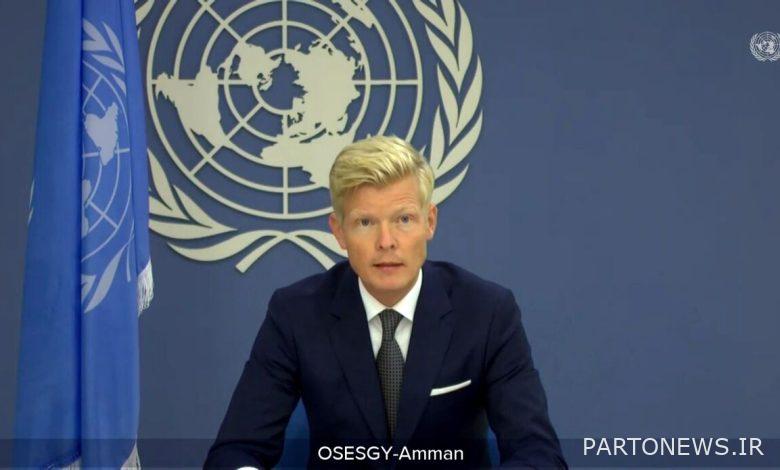UN: Real political will is needed to end the war in Yemen

In a report to the UN Security Council on Wednesday, UN Special Representative for Yemen Hans Grandberg added that the Yemeni war is full of missed opportunities, in part due to a lack of acceptance and compromise by the parties involved due to a sense of weakness or Is power.
“I urge the parties involved to respect and abide by their obligations under international humanitarian law, including the protection of civilians, and to preserve the civilian identity of public infrastructure,” he said.
Grandberg said in part that seven years have passed since the Yemeni war, and it seems that the prevailing belief of all parties involved is that enough damage to the other side will force them to surrender. However, there is no long-term solution to stability on the battlefield.
He also called the allegations of militarization of al-Hudaidah port worrying, saying that the dangers of attacking ports are just as worrying because they are a way of life for many Yemenis.
The UN Special Representative for Yemen stated that the UN mission in Al-Hudaidah is closely monitoring the developments and has called for an inspection of the port.
The UN official noted that continuing to block roads and checkpoints across Yemen, as well as obstructing the import and distribution of essential goods to civilians, including fuel, is unacceptably harming the Yemeni people.
He added: “The fact that the closure of Sanaa airport for almost six years has deprived Yemenis in the north of the country of travel, including for receiving vital medical care, is unacceptable and Yemeni, regional and international leaders are responsible for These are the issues.
In its recent reports on the escalation of the conflict in Yemen, especially since last December, the United Nations has warned that the situation undermines the prospect of a lasting political solution to end the war in the country.
According to the UN High Commissioner for Refugees (UNHCR), two-thirds of Yemen’s population (about 20 million people) are in need of humanitarian assistance, and 80 percent of them live below the poverty line.
Meanwhile, the United Nations Development Program (UNDP) warns that Yemen is suffering from “the worst and greatest humanitarian catastrophe in the world” and estimates that more than 337,000 people will be directly or indirectly affected by the conflict by the end of 2021. (Invasion of Yemen) have been killed.
Saudi Arabia launched a large-scale offensive against Yemen, the poorest Arab country, on April 26, 1994, in the form of a coalition of several Arab countries, including the UAE, with the help and green light of the United States, under the pretext of returning ousted and fugitive President Abd al-Mansour Hadi. Let this country fulfill its power, its goals and its many political aspirations.
UN agencies, including World Health Organization and UNICEF, have repeatedly warned that the Yemeni people continue to face famine and a humanitarian catastrophe that is unprecedented in the last century.
Many experts attribute the recent escalation of the Saudi coalition’s attacks on Yemen to the failure of the coalition to achieve its goals in Yemen. The United Nations blames the continuing conflict in Yemen and the inhumane siege on Yemen for the unprecedented famine and humanitarian catastrophe of the past century.
.

